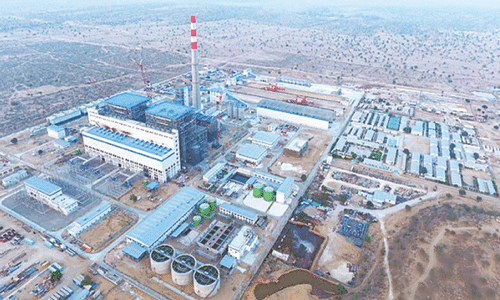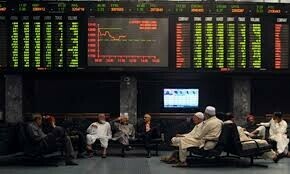 THE exit of President Pervez Musharraf and the inability of the coalition partners to spell out a clear economic strategy have increased the anxiety of foreign investors. The local business class, though weary of political acrobatics, cannot afford to lose hope.
THE exit of President Pervez Musharraf and the inability of the coalition partners to spell out a clear economic strategy have increased the anxiety of foreign investors. The local business class, though weary of political acrobatics, cannot afford to lose hope.
The foreign investment advisors find the signals emanating from Islamabad too weak to convince them that the elected coalition government has the capability to tackle problems of an economy under severe stress. The local business class, however, is not as disenchanted or so it pretends as the parliament assumes more power.
Some international rating agencies stopped just short of downgrading Pakistan’s sovereign credit rating, warning the country to spell out clearly its strategy to deal with such problems as deteriorating fiscal position, slowing economic growth, double-digit inflation and the rupee’s slipping exchange rate.
Moody’s said that while many factors which led to the downgrade of Pakistan to B2 from B1 in May 08 still persisted, the rapid deterioration of the country’s foreign exchange reserves had now emerged as ‘the most imminent risk facing its sovereign ratings and country ceiling’.
“The economic distress is not Pakistan-specific, even the most politically stable countries are struggling to absorb oil and commodities price hike shocks. We have every reason to believe that PM Gilani government will do all in its power to put the economy back on track. To me the worst democracy is better than the best dictatorship”, Eijaz Sheikh, a leading businessman and Chairman All Pakistan Cement Manufacturers Association, told Dawn over telephone from his farmhouse near Lahore.
He, however, was critical of the bias of political parties against wealth accumulation that he thought was necessary to achieve the required rate of investment. He also lamented the fact that the populist sloganeering by politicians provoked people against successful businessmen, adding to the problems of the business class. He was also critical of the governments which focus on revenue generation at the cost of economic expansion.
Many leading lights of the corporate sector were found counting the virtues of democracy when contacted to seek their comments after ex-president Musharraf vacated the presidency. It was so different in Karachi last month when some businessmen were reported to have advised him to wrap up the democratic show to save the country and the economic gains of his ‘glorious nine years’.
“I call it adjustment. The government may rise or fall but the business must go on. Why do you expect political finesse from traders? We are good at calculating profit and loss and understand fully well that the business cannot flourish if we meddle in politics of the right and wrong. So the business will always be on the side of the government irrespective of the fact who occupies the office”.
The corporate sector has always been supportive of direct military rules. In return, they were subsidised, facilitated and patronised to do what they are keen to do and are best at doing: amass wealth. It also encouraged international capital and financial inflows including greater direct foreign investment. All said Pakistan achieved higher average growth rates under dictatorships whether it was 60s of General Ayub, 80s of General Zia or 2000s of General Musharraf, but at heavy social costs and widening disparities in household and regional incomes.
Commenting on the subject of negative business perception of political government Hina Rabbani Khar, Special Assistant to the PM on finance, revenue and economic affairs mailed: “I know what you point out is indeed considered to be the view which is widely held within the private sector or at least large parts of it. I think we have learnt the hard way that no matter how chaotic a democratic dispensation may seem, in the long run that is able to give you the long-term stability that is vital for business and economic progress”.
“Under a different rule, the decision making is much more simplified and quicker. But in the long-term, I feel the edifices that are built, are at danger of collapsing very quickly. I think a comparison between our neighbour and us presents an excellent case study of what is better for business interest in the long-run”, the lady advisor who was equally popular at the higher echelons in the last regime added.
Sardar Rahim, owner of a popular restaurant in Karachi and a leader of PML (N), cited many reasons why business should support democracy. “First of all history has taught us that crisis created by dictatorship could lead to breaking up of the country and destroying many successful businesses. Democratic government is more predictable as there are inherent provisions to prevent such catastrophes”.
“Second, a democratic set-up is more effective because it enjoys greater acceptability amongst people.
Third, leverage of the state is used for the greatest good of the majority”, he said.
“I feel sad to move out now that my children are in good schools here. But the situation has become scarier after Mr. President was forced out. I read it as a perfect recipe for disaster with looters given keys of treasury and ‘fundos’ knocking at our doors. Those who have no options may dance to the music but I cannot take a chance with my little daughters”, said a nervous public relation professional who returned to Pakistan in 2002 and did very well in his line over the last six years.
“Only if they promise to shun the politics of patronage, I am ready to support them. But what is there in politics for them if they can not promote their private personal interests”, said a disgruntled businessman angry over permission to set up power plants that he felt were given either for loyalty or for payouts” a businessman told Dawn.
Another successful asset manager who wished anonymity said only those who have locked their capital in industry will fight it out till the end but all those, and there are many, who have invested in trade and other short-term business avenues are already shifting their capital outside Pakistan to the Far East and the Middle East in search of safer options.
The democratic government needs to show its resolve to attract steady capital inflows in form of remittances, FDI and direct support from trading partners. It is a huge challenge in the given global financial turmoil and international credit crunch. Only the oil-rich Middle East offers a window of opportunity.
It should first try to restore the business confidence by taking them on board in official decision making.















































Dear visitor, the comments section is undergoing an overhaul and will return soon.